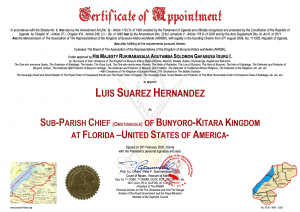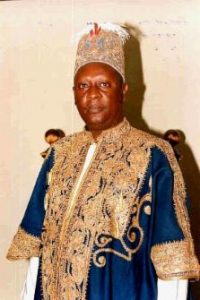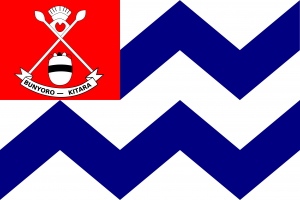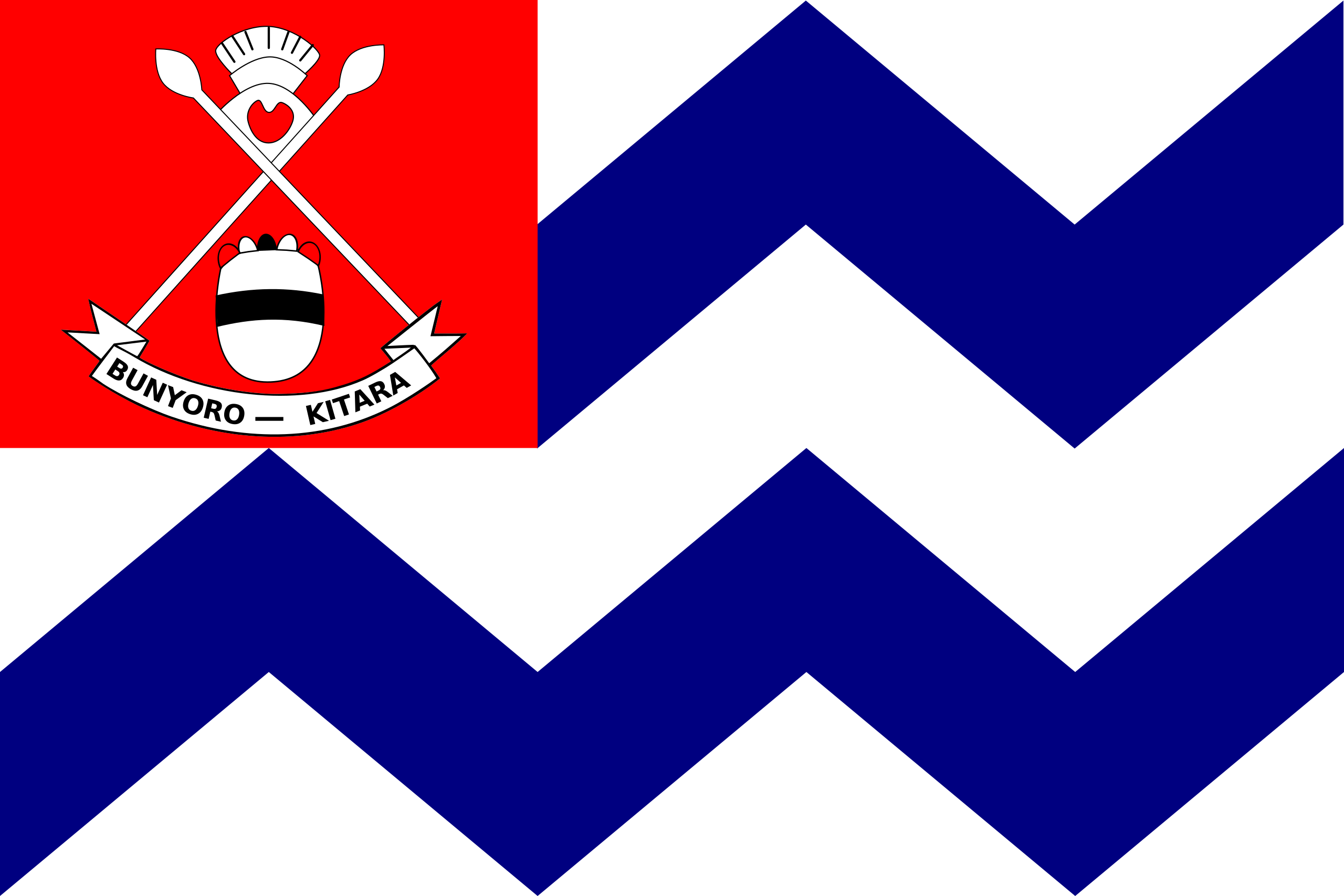 H.E. Luis Suárez Hernández (Archive file with the Vice-Minister of Culture of Dominican Republic) has been recently appointed as Sub-Parish Chief (Omutongole) of Bunyoro-Kitara Kingdom of Uganda in Florida (United States of America) according to by his contributions to education as a philanthropist by the Association of the Representatives of the Kingdom under approval of His Majesty Rukirabasaija Agutamba Solomon Gafabusa Iguru I, Omukama of Bunyoro-Kitara Kingdom (Republic of Uganda).
H.E. Luis Suárez Hernández (Archive file with the Vice-Minister of Culture of Dominican Republic) has been recently appointed as Sub-Parish Chief (Omutongole) of Bunyoro-Kitara Kingdom of Uganda in Florida (United States of America) according to by his contributions to education as a philanthropist by the Association of the Representatives of the Kingdom under approval of His Majesty Rukirabasaija Agutamba Solomon Gafabusa Iguru I, Omukama of Bunyoro-Kitara Kingdom (Republic of Uganda).
The Kingdom Bunyoro Kitara was a very extensive, prestigious and famous at the height of its power.
Socially, people were organized in strong clans with the royal clan of the kings, princes and princesses. The King held executive, judiciary and legislative powers. His word was highly respected and almost equated to the word from God. The King’s subjects ensured that their King lacked nothing economically. Clans would bring foodstuffs (Ebihotole) in turn and each clan had a specific duty to perform for the King. For example, Abaliisa clan were the shepherds of the Kings cattle (Enkorogi), the Abahamba clans were the hunters and bodyguards (Abakumirizi) for the King, the Abasiita clan being the artisans and craftsmen and the Bayaga clan were the chief entertainers of the King.
Politically, the King had absolute authority over his subjects. He appointed the county chiefs (Abamasaza) to administer each county. Bellow them were sub-county chiefs (Abagomborozi) who were sub-county administrators. These received reports from parish chiefs (Abemiruka) and Sub-parish chiefs (Abatongole). At the very grass root were the village chiefs (Bakuru b’emigongo). With this hierarchical arrangement, the king’s messages used to reach at the grass root very fast. Later on, the office of the Prime Minister (Omuhikirwa/Katiikiro) was established to head the civil service of the entire Kingdom. All county chiefs report to him and he, in turn, reports to the King.
Economically, the Kingdom of Bunyoro was the supplier of foodstuffs to other neighboring kingdoms. The fertile soils of the kingdom enabled people to grow plenty of food for home consumption and the surplus was sold to the neighboring communities. People’s economy thus was greatly hinged on Agriculture carried on using traditionally made hoes. Barter trade was also common.
The people along Lake Mwitanzige (Albert) known as the Bagungu were fishermen. Some communities were hunters using nets, knives and spears as their locally made tools for killing small animals while the big ones were killed using well dug deep pits (Obuhya). People thus exchanged fish or dried meat (Omukaro) with foodstuffs. The coming of the Bachwezi introduced the culture of cattle keeping on a larger scale with their long-horned cattle which yielded more milk.
Salt processing in Kibiro is still going on up to today. The Abanyakibiro got their living through the exchange of this salt and fish. The Banyoro also produced a number of wooden items, hides and skins items, palm and sisal items, iron and stone items, pottery and mud items, and many others on an economic basis. These were either sold or exchanged for other items that they needed.
The Bunyoro-Kitara Kingdom is a Subnational monarchy (traditional)HM The Omukama Rukirabasaija Agutamba Solomon Gafabusa Iguru I. is a reigning constituent monarch, traditional ruler. He reigns over a legally recognized dominion, but with no sovereign governing/political power. His titles, however, are recognized by the Republic of Uganda.
In Uganda, the ancient kingdoms and chiefdoms that were met by the colonialists when they first arrived on the continent are now constitutionally protected as regional entities.
 His Majesty The Omukama (King) of the Bunyoro-Kitara Kingdom and the Bunyoro-Kitara Kingdom were restored by the Amendment [No. 8] Act – Statute No. 8, Article 118 (1)- of 1993 enacted by the Parliament of Uganda and officially recognized and protected by the Constitution of the Republic of Uganda by Chapter IV. –Article 37.-, Chapter XVI. -Article 246. (1) – (6)- of 1995 and by the Amendment [No. 2] Act -schedule V. -Article 178.8- of 2005 and by the Acts Supplement [No. 4] -Act 6. of 2011
His Majesty The Omukama (King) of the Bunyoro-Kitara Kingdom and the Bunyoro-Kitara Kingdom were restored by the Amendment [No. 8] Act – Statute No. 8, Article 118 (1)- of 1993 enacted by the Parliament of Uganda and officially recognized and protected by the Constitution of the Republic of Uganda by Chapter IV. –Article 37.-, Chapter XVI. -Article 246. (1) – (6)- of 1995 and by the Amendment [No. 2] Act -schedule V. -Article 178.8- of 2005 and by the Acts Supplement [No. 4] -Act 6. of 2011
Bunyoro is a kingdom in Western Uganda. It was one of the most powerful kingdoms in Central and East Africa from the 13th century to the 19th century. It is ruled by the Omukama of Bunyoro. The current ruler is Solomon Iguru I, the 27th Omukama (king) of Bunyoro-Kitara.
Today, the Banyoro are now agriculturalists who cultivate bananas, millet, cassava, yams, cotton, tobacco, coffee, and rice. The people are primarily Christian.
At its height, the Bunyoro kingdom controlled the Great Lakes region of Africa, one of many small states in the region. The earliest stories of the kingdom having great power come from Uganda and Rwanda. The power of Bunyoro faded by the end of the 16th Century, with the invasion of Rukidi-Mpuga from the north, following the death of a beloved king’s cow Bihogo: There was a prophecy that when the beloved cow Bihogo died, this would mark the beginning of the end of this Chwezi Empire. Many of the Chwezi descendants who governed this empire moved south to present-day Uganda and Rwanda. Later, new kingdoms arose in the Great Lakes area, such as Ankole, Buganda, Toro, Busoga, Bagisu (in present-day Kenya and Uganda), Rwanda-Urundi, Bunyoro and Karagwe.
Bunyoro rose to power and controlled a number of the holiest shrines in the region, as well as the lucrative Kibiro saltworks of Lake Albert (Africa). Having the highest quality of metallurgy in the region made it the strongest military and economic power in the Great Lakes region.
The kingship of Bunyoro is the most important institution in the kingdom. The king is patrilineal meaning that it is passed down through the male line. This tradition comes from a myth the Nyoro people tell. Once there were three sons of the Mukama, all having the same name. In order to name them, the Mukama asked God to help him.
The boys must go through a series of tasks before being named. The three of them had to sit all night holding a pot of milk. Milk is a sacred drink used for important events. Whoever had all their milk still in the pot by morning would be king. The youngest son dropped the milk and begged his older brothers to give him some of theirs, they did. When morning came the eldest son dropped a little more. When God and the Mukama came to observe the pots, the eldest son was named after the peasants who are not fit for cattle herding since he had no milk left. The middle son was named after cattle herders and the youngest son was named Oukama and later Mukama or king for having the most. This myth shows the ways in which the Nyoro infuses religion and kingship together.
More information: http://www.bunyoro-kitara.org/index.html


Comments are closed